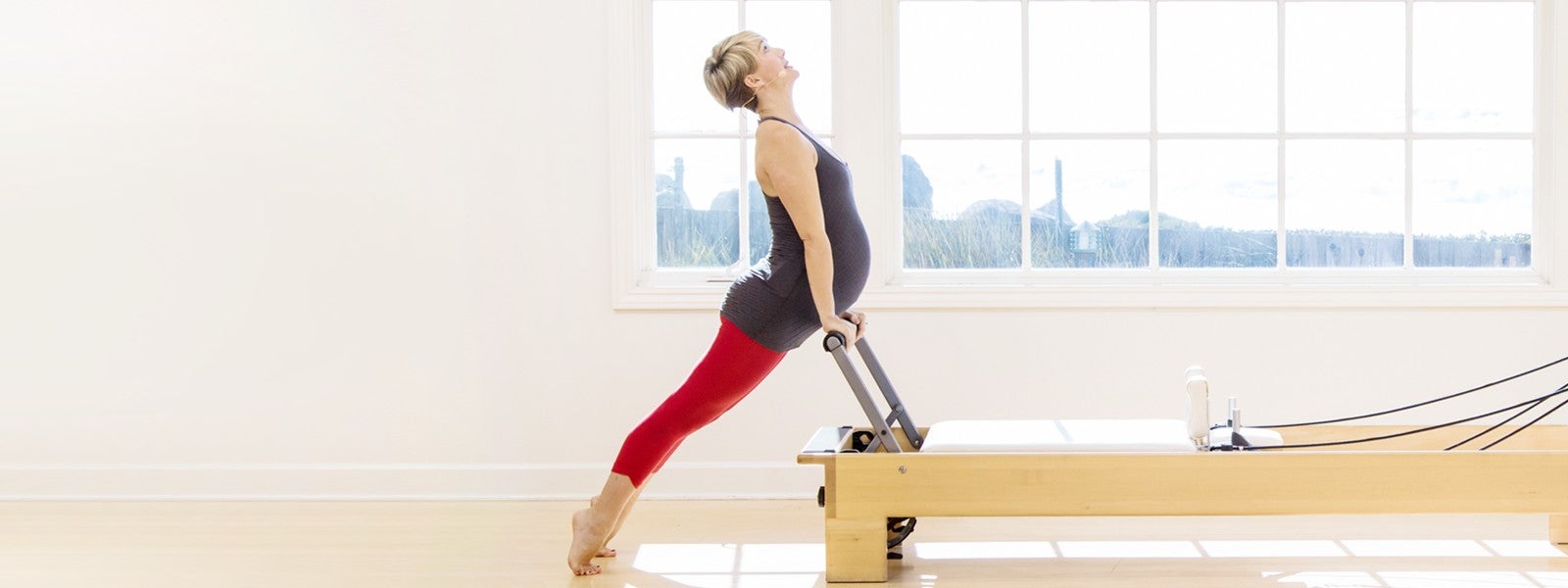
Reformer Pilates for Pregnancy
Today, moms and mothers-to-be are more educated than ever about pregnancy, birthing, and beyond, thanks to technology. Unfortunately, though, there is so much confusion with the sheer overload of information online, that it is hard to be sure if you are making the right decisions for you and your baby. The moment you know you are pregnant, your instincts kick in and because you are now considering everything for two, it is normal and instinctive to be hesitant. That’s beautiful.
This article will focus on Reformer Pilates for Pregnancy, but there are other classes available with little to no equipment which you can find here: Prenatal Mat ClassesExercising During Pregnancy
With an excess of unsolicited advice, you will, no doubt, be getting from your friends and family from the moment they know you are pregnant (most of them mean well...), to the overload of contradicting information online, it is no wonder there is confusion on what information you can trust. We hope to help you decide if Pilates is right for you during your pregnancy.
The American College of Obstetricians and Gynecologists agrees with most experts that, as long as you have discussed it with your doctor, regular exercise during pregnancy is vital to help combat normal pregnancy issues such as back and pelvic pain, and also help you and baby prepare for the arduous birthing process ahead. It could even help prevent pregnancy-related conditions such as pre-eclampsia and also support healthy weight gain.
On the topic of Pilates during pregnancy, there are two very different schools of thought once you start looking for information on whether you should or should not do any abdominal exercises during pregnancy. On the one side, they say, none whatsoever – why even bother? On the other side, they say that you should just keep doing the same Pilates exercises you did before.
You don't need to lean toward either of these extremes. Instead, adapt as you go through your journey. Be realistic, listen to your body, your doctor, and your motherly instincts, and just make the most of the movements and exercises that feel right and comfortable.
Benefits of Prenatal Pilates
Prenatal Pilates is one of the best forms of exercise you can choose to not only deal with the normal aches and pains as your pregnancy progresses, but it can also help with your mental health.
You are less likely to feel the usual strain from pregnancy because the right muscles will be strong enough to support you and the baby while also helping with stability and balance.
Pilates, similar to Yoga, puts you in such a great mental space. Your calmness will be soothing to your baby and help you with getting ready to breathe through the delivery as well.
Pilates can continue to support you Postnatally. Since your core has been strong throughout, you will be able to get your pre-pregnancy body back faster than someone who didn't keep the same strong core and healthier habits.
As your baby grows, your body will feel the effects of the additional weight you are carrying as well as the changes in your center of gravity. Prenatal Pilates can help you with better alignment which will help decrease hip, shoulder, and back pain.
Abdominal Exercise and Pregnancy
You may have many questions such as how safe it is for you and the baby when you do abdominal exercises during pregnancy or overstress your abs. You may have fears of injury to you or your unborn baby. Pilates during pregnancy is not the same as regular Pilates as you have to modify movements and exercises depending on your pregnancy term.
This brings up another question - is an adaptive prenatal Pilates going to be enough of a workout? This is a fear of expecting moms who are in very good shape and exercise often. You may be concerned that you will not be challenged enough.
Your Abs and Pelvis (Ground Zero)
The muscles in your abdomen work together to support your body, your lower back, and your pelvis. Keeping these muscles strong and healthy will not only help you bear the extra weight that comes with the baby and the pregnancy, but they are also vital for labor. It is not so much about working your abdominals, as it is about being aware and in control of them.
You can count on the fact that your abs will stretch during pregnancy. However, this was how they were designed to work. Pregnancy is a very natural process. You can't fight the changes, so keeping your abs toned during this time is not only unrealistic but also not the goal of these exercises.
You want to embrace all these physical changes, which will also include hormonal changes. Although you won't be able to do anything about the stretch of the muscles, you can make sure they stretch in a healthy and natural way. So, yes, you are going to lose your six-pack for a while. But if you do the right exercises, they will provide the right amount of abdominal support and postural control.
How Do You Know it is Time for a Modification?
These recommendations are general guidelines based on average prenatal progression. It is up to you to recognize when some of the movements and exercises are no longer easy to do, comfortable, or even possible.
By the second trimester, you want to avoid exercises involving deep flexion and deep extension. And to be clear, flexing and extending your trunk isn't going to hurt the baby at this point, but the concern is with you - mom - as your muscles are stretching and softening and changing to accommodate your growing baby. Keeping flexion and extension minimal to the upper back, neck, and shoulders is a good rule of thumb. As you enter the 2nd or 3rd trimester, your range of motion for certain exercises will be limited, for example, Stomach Massage with a round back or the Twist and Reach will be nearly impossible. Do not be alarmed but work with your instructor to guide you through these discoveries.
Another modification to keep in mind is by the 2nd trimester, you'll need to limit the time you spend lying flat on your back. It's recommended to prop your upper body up slightly which will also make it easier for you to get up and off the reformer. Ask your instructor if they have a wedge or a pillow to support you. When going through labor, your abs (especially the upper parts) will contract along with the uterus to help guide the baby down and through the birth canal. In addition to that, your pelvic floor muscles will try to open as well. Doing Pilates during your pregnancy will help you get a sense of how to engage these muscles during labor to make it easier for you and your baby.
PELVIC FLOOR videos by Leah Stewart
Shifting Your Exercise Focus While Being Pregnant
Part of pregnancy is hormonal changes and mood shifts so it is easy to get down and focus on all the things you can't do, especially if you are used to a healthy fitness routine. Remind yourself that you are not weak or even fragile, but in fact, you are strong and capable enough to grow and birth a human being.
At Pilates Anytime, we can offer you a vast array of exercises that you CAN do. You will need to be creative, you have to be very honest with your body and listen when something feels uncomfortable, and you have to be willing to adapt as you go along.
Some obvious changes will be any exercises that could hurt yourself or the baby. Any exercise where you have the risk of falling should be avoided. You will also not be able to do anything lying on your stomach, for some as soon as the beginning of the first trimester. Later, it will become very uncomfortable lying on your back - you may become nauseous or lightheaded, so when you get there, and it doesn't feel right, you will make a change to adapt. Any modifications you make should feel good.
Pilates Exercises for Pregnancy
- Footwork
- Seated Arm Work (on the Reformer)
- Chest Expansion
- Kneeling Arm Series
- Eve's Lunge Stretch
- Mermaid
- Feet in Straps (you may need a Wedge to prop the back up)
- Side Leg Series
- Flat Back Short Box Series
- Side to Side (seated on Short Box)
- Down Stretch
- Modified Long Stretch
In many of the Reformer exercises, you will eventually benefit from adding additional support from props such as an Overball, Theraband, Reformer box, and Wedge.
In summary, few other journeys can compare to the changes you, your body, and your mind will undergo as you go through your pregnancy. And it doesn’t stop there. Once your baby is here, your body will have to do a complete turnaround to undo nine months of slow changes. If you take care of yourself through this journey, this could (and should) be one of the most rewarding experiences you will ever go through.
If you have benefited from Prenatal Pilates, please share your experience in the comments below. We'd love to hear from you!
Comments
No comments yet. Be the first!

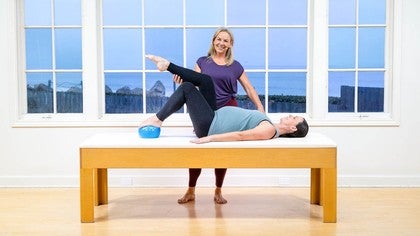

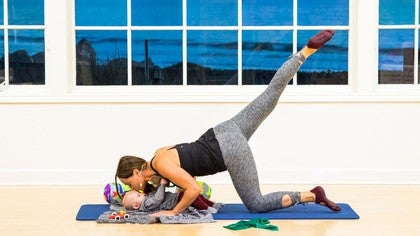

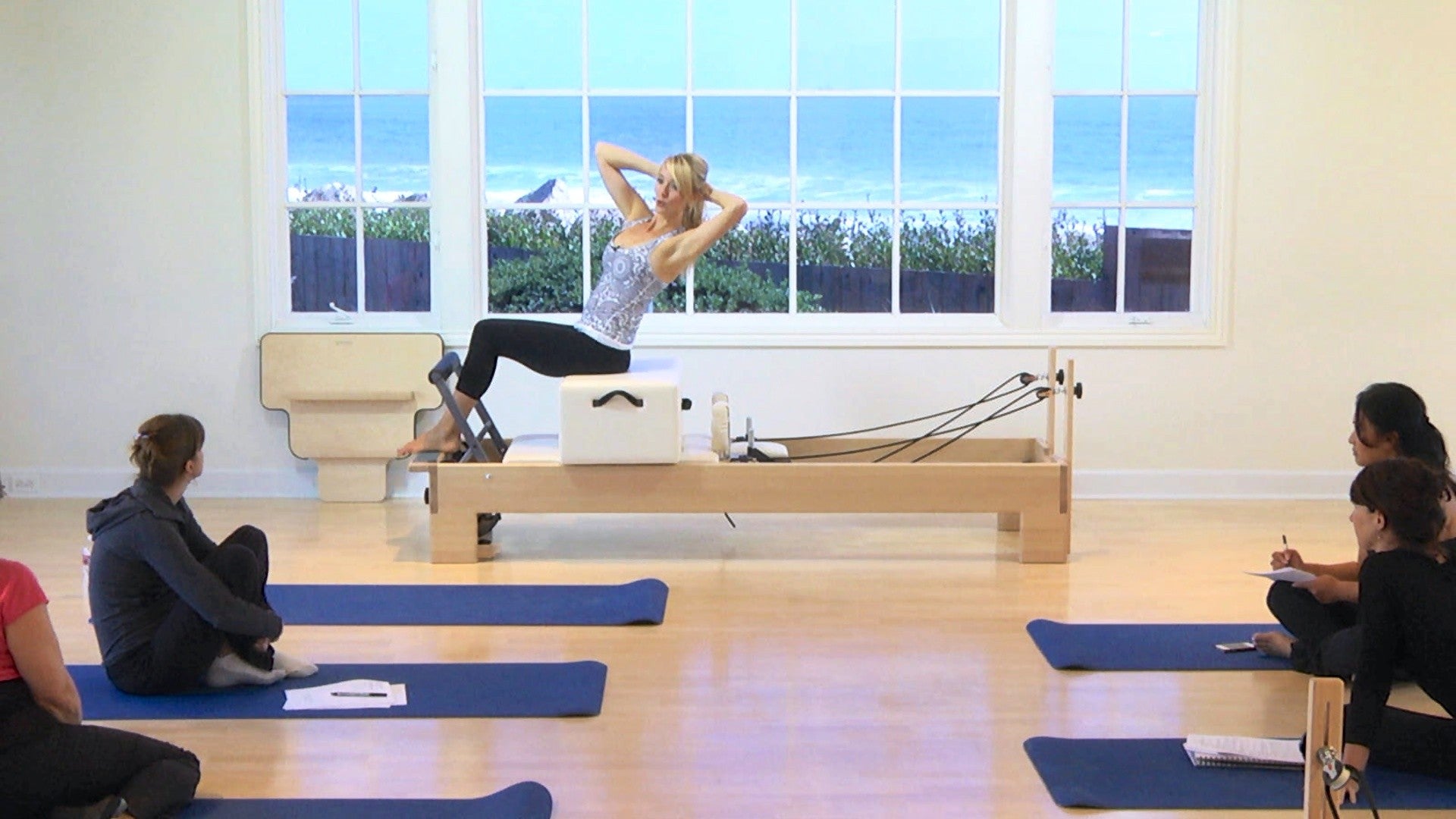
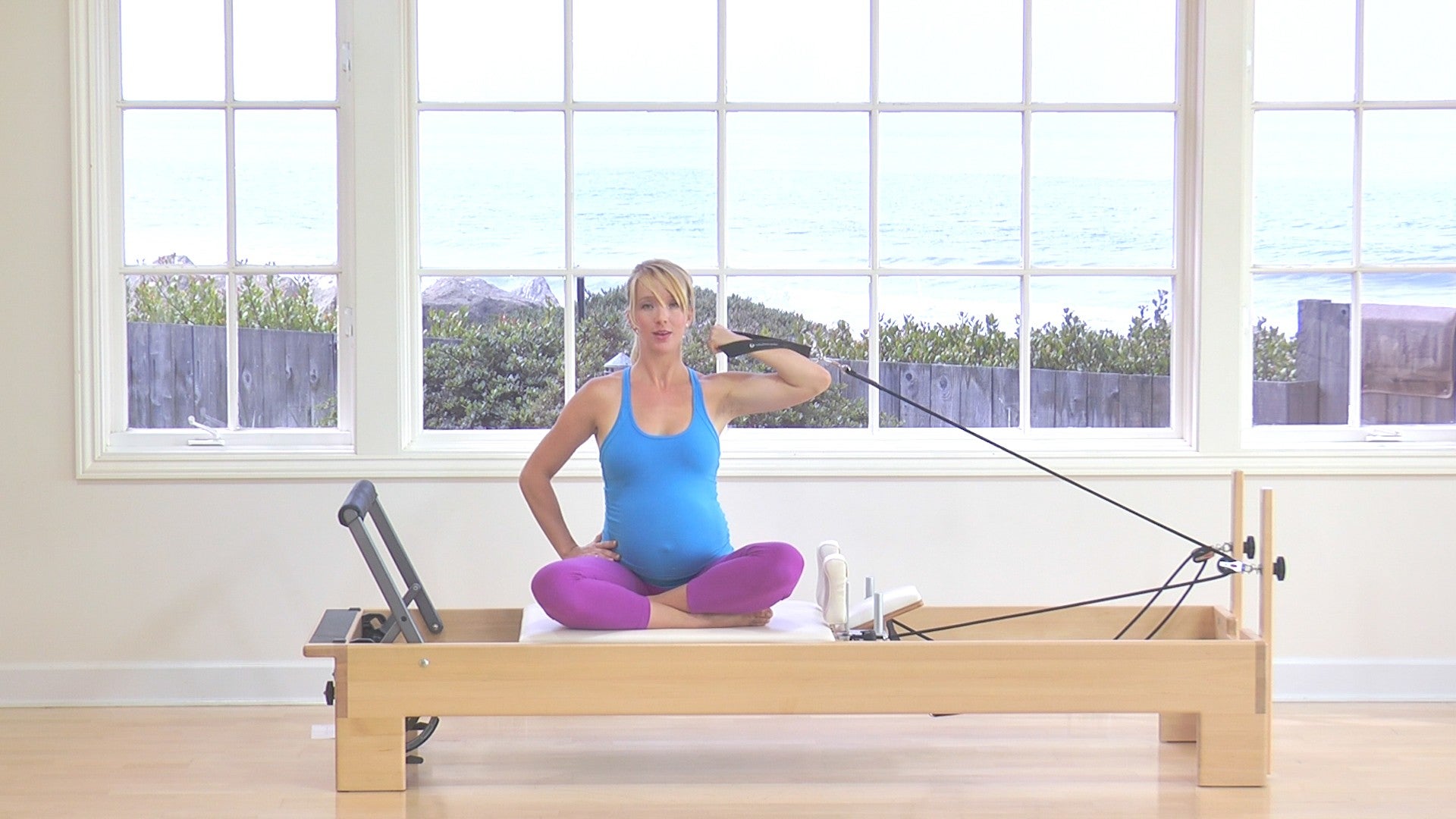
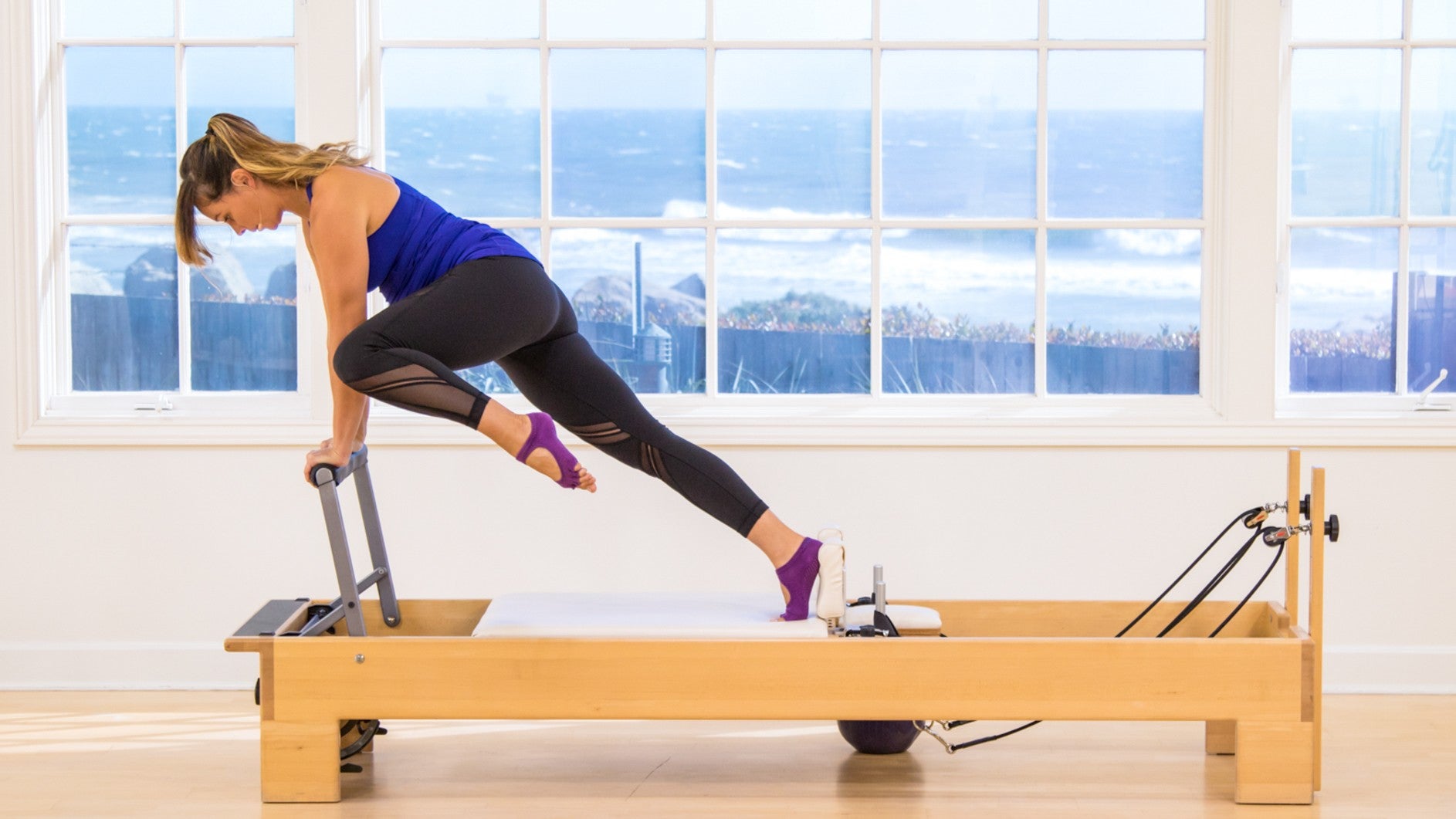
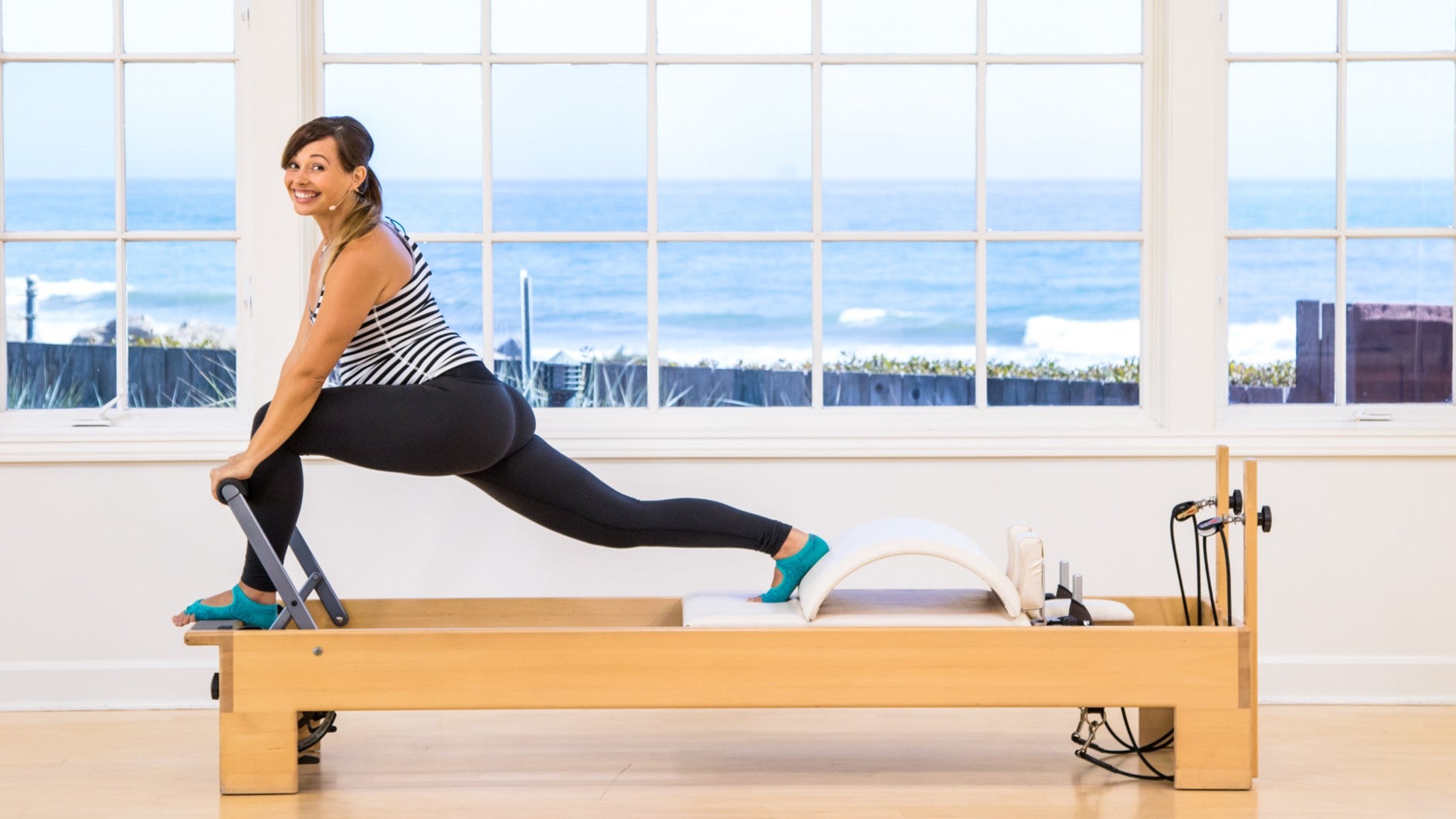
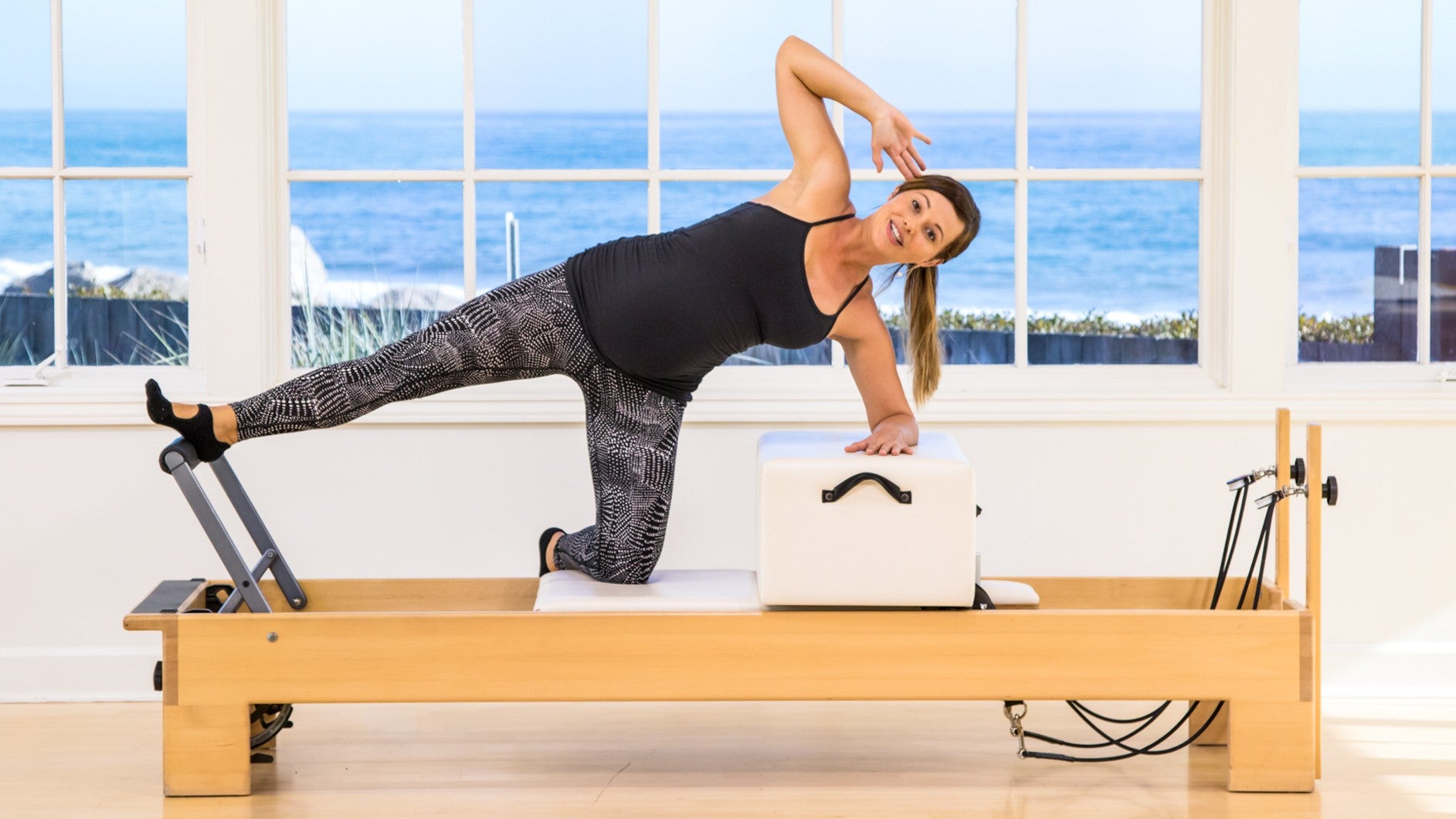












You need to be a subscriber to post a comment.
Please Log In or Create an Account to start your free trial.